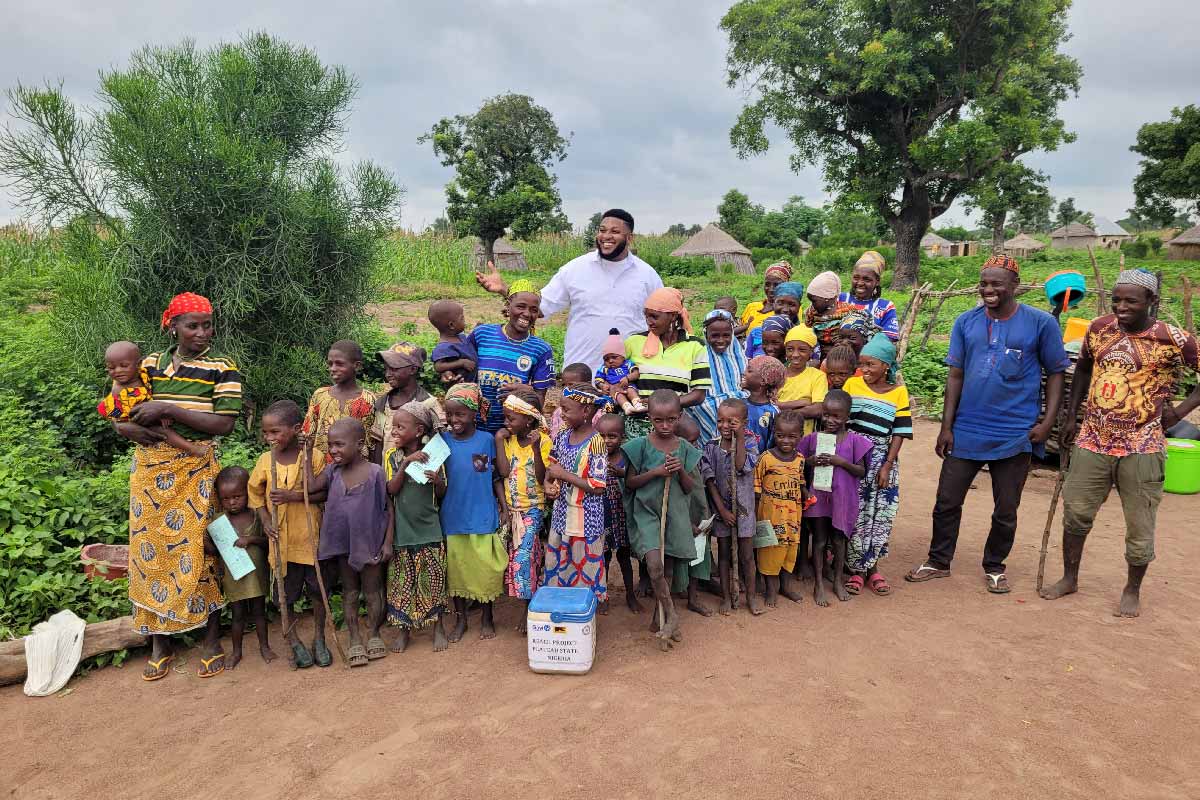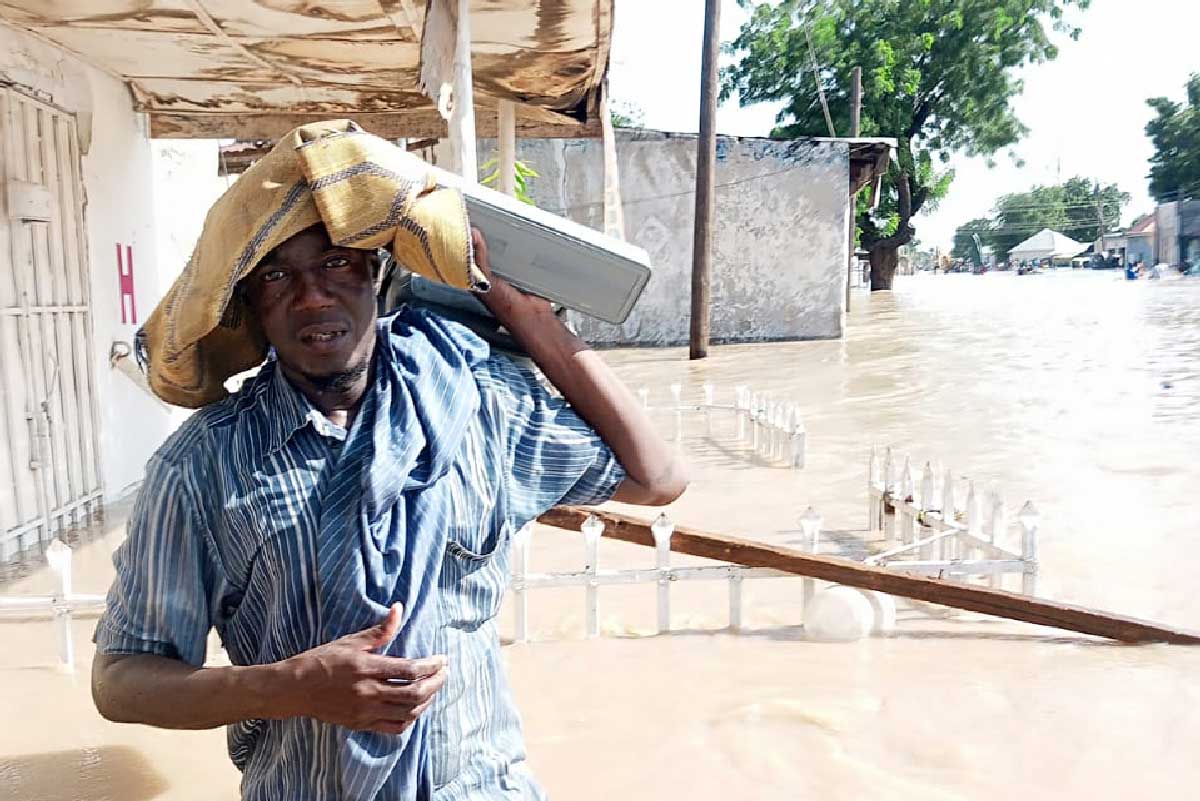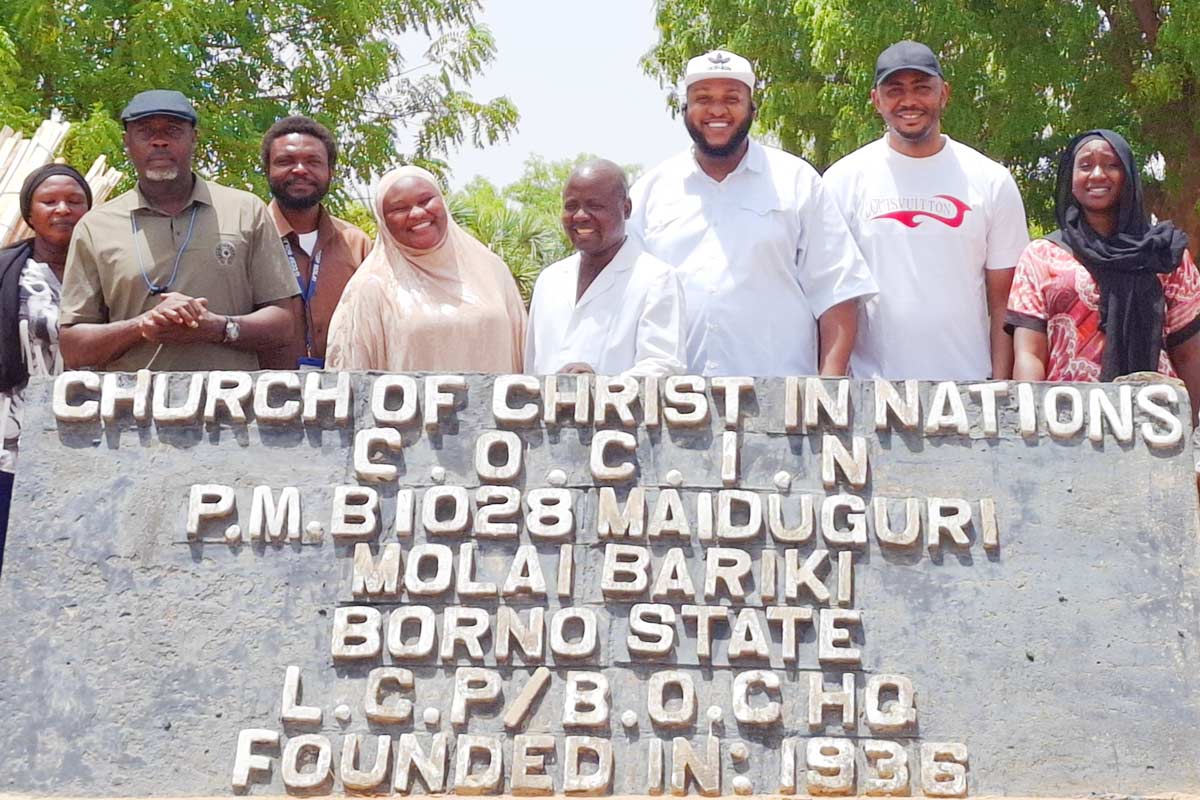This Nigerian village head can't stop the bandits, but he can fight disease
The Tung community lives amid pervasive insecurity. As a result, vaccine-preventable diseases have been allowed to gain a foothold – but Murtala Aliyu is determined to fight back.
- 27 November 2025
- 5 min read
- by Christian Health Association of Nigeria (CHAN)
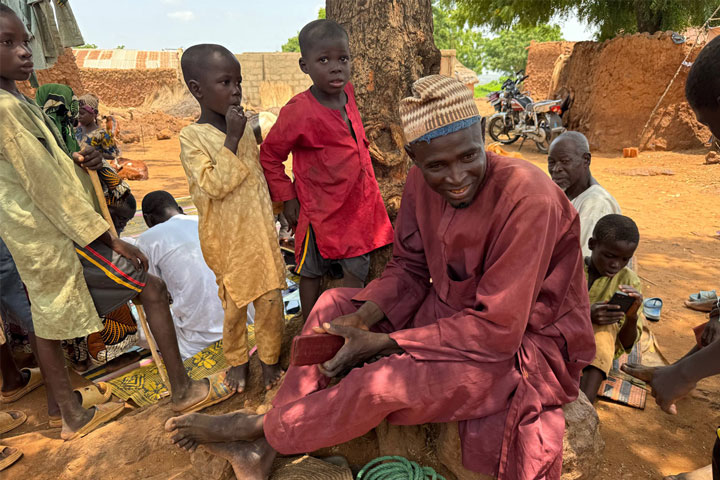
Over the past couple of years, the shadow of fear hovering over the Tung community, part of the Wurno local government area in Nigeria’s Sokoto State, has grown darker.
In what was once a quiet farming settlement, families live in pervasive insecurity. Armed banditry, kidnappings and abductions have grown increasingly frequent, and have made the activities of daily life into a gamble. Families hesitate to step beyond their compounds, farmers avoid their croplands and strangers are often met with suspicion.
The danger has proven isolating. Even government immunisation teams, a regular presence across most of the country, have struggled to get through the wall of insecurity. Hundreds of children in the Tung area have never received a single vaccine.
But that’s exactly the gap that the health workers from the Christian Health Association of Nigeria (CHAN) are here to bridge. Despite the challenges, they persist, motivated by the belief that no child should be left behind, regardless of where they live.
CHAN is implementing the Nigeria portion of a Gavi-funded, multi-national project known as REACH. REACH – which stands for Reaching Every Child in Humanitarian Settings – is led by the International Rescue Committee and is designed specifically to bring vaccination to children in places where conflict and crisis have put up impassable barriers to national immunisation programmes.
The aim is simple, even if the mission isn’t: get all children aged five or younger every one of the vaccines they are due - no matter how remote their home, how risky the conditions, or how underserved their community may be.
A leader steps forward
When the CHAN-REACH team first arrived in Tung in 2023, they were met with silence and tension.
The villagers had seen people come before, promising assistance or collecting information, but many never returned, leaving behind broken trust. “We lost faith in outsiders,” recalls Murtala Aliyu, the Mai Angwa or village head. “We are even scared to go to our farms. Kidnappers were everywhere. Anyone could be taken.”
Have you read?
But Aliyu understood the cost of isolation. A father of nine, he had seen what happened to children who missed their vaccines. He had seen children facing frequent illness, weakness, and sometimes death from preventable diseases. When he learned from the mosque and government messages – delivered in meetings with community leaders – that a trusted organisation would be bringing immunisation services to his community, he decided to take a chance. “I value the health and well-being of my children and my people,” he said, pointing to his youngest son. “All my nine children have received their vaccines, and this one will too.”
The REACH team introduced themselves respectfully, explaining that they had come not for profit, but to protect the community’s children from diseases.
Their humility, patience and consistency helped shift community perceptions. Aliyu observed how they worked, patiently speaking to mothers and reassuring them about the vaccines.
But when a few caregivers refused vaccination, Aliyu stepped in. “When they had a non-compliant issue, they came to me,” he said. “I spoke to the caregivers, and the matter was resolved. After that, I began to sit with the CHAN-REACH team each time they came. On days when I am unavailable, I ask another respectable and recognised person to sit with the team at the site. When my people see me there, they know it is safe and they bring their children.”
Building trust through presence
Aliyu’s presence changed everything. Caregivers began to gather around the vaccination site, children on their laps, older siblings carrying younger siblings when mothers couldn’t leave their homes.
Some families had never received a single vaccine before, and others had missed doses for years due to insecurity and lack of services. Aliyu’s leadership gave them the courage to return. “Sometimes I even give something small to the town announcer,” he said with a smile, “so he can go around telling everyone the health workers are here. The men listen to me. I tell them to let their wives bring the children out, so they can learn about vaccines and know when to come with their children for the next vaccination.”
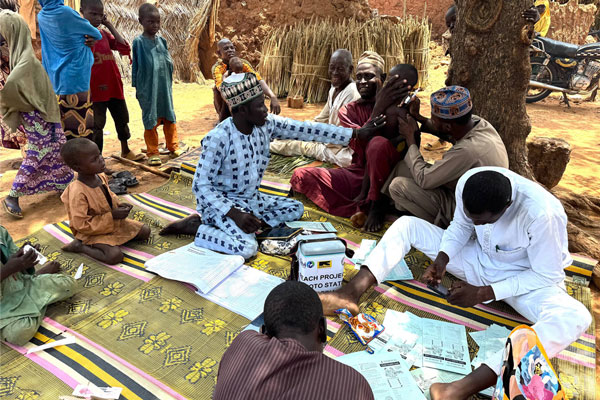
Aliyu’s decision to sit publicly with the vaccinators symbolised trust and acceptance, a powerful gesture in a community scarred by violence. “Seeing the village head beside us makes people believe in the work we’re doing,” explained a member of the CHAN team.
Progress amid insecurity
Across Sokoto State, this approach of empowering local community structures for sustainable change – a Gavi priority – is yielding measurable impact.
By the end of September 2025, the REACH project had supported the administration of 988,851 doses of vaccines in Sokoto state, steadily reducing the cohort of the unprotected.
In communities like Tung, every vaccinated child represents a victory over fear, insecurity, and misinformation. Immunisation sessions are still sometimes interrupted when reports of armed movement reach the area, but adaptive scheduling – using early mornings and alternative days – keeps the service running. Through this collaboration, the number of zero-dose children continues to fall, and mothers are learning that vaccines mean safety, not danger.
Standing at the vaccination site that morning, surrounded by mothers and children, Aliyu summed up what the journey meant to him.
“I can’t stop the bandits,” he said, “but I can help protect our children from diseases. That is what I can do for my people.”
How is Gavi supporting CHAN?
Gavi’s humanitarian partnerships programme, also known as ZIP, funds partner organisations with specific expertise in navigating humanitarian crisis. The aim? To deliver all scheduled vaccine doses to children from birth to age five in communities where conflict impedes the access of government-provided health services.
CHAN, operating in troubled parts of northern Nigeria, is one such specialist organisation, and is operating as part of the IRC-led, ZIP-funded, REACH consortium, which works in humanitarian settings across Chad, Ethiopia, Nigeria, Somalia, South Sudan, and Sudan.
As of September 2025, ZIP had provided more than 2.4 million children growing up in crisis zones with their very first vaccine, and 1.4 million children with their last recommended dose, leaving them fully immunised.
